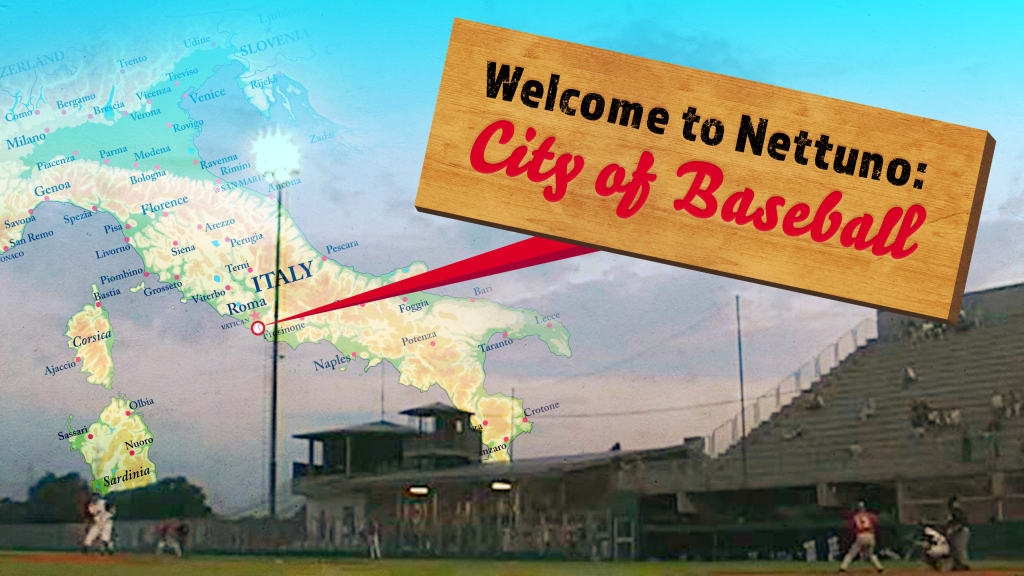
“It’s all about baseball in Nettuno,” former player Giampaolo Faccendini said in the "City of Baseball" documentary. “I don’t know why, it’s something in the air. In the water.”
When you think of Italy, baseball probably isn't the first thing that comes to mind.
There's pizza, there's pasta, there's wine, there's Rome, there's soccer, there's Leonardo da Vinci and Roberto Benigni.
But there are some small pockets of hardball-loving towns.
One of the more famous is a place down along Italy's southwest coast. It's about an hour from Rome, home to about 50,000 people. It's a vacation spot along the Tyrrhenian Sea.
Even with the crystal-clear waters distracting you off to your left and the Italian villas showing off atop the hillsides to your right, it's hard to miss the road into Nettuno. In between a couple of big, breezy palm trees, there's a giant sign that'll catch your eye.
"It's the cultural fabric of the town -- it is their identity," "City of Baseball" documentarian Chris Ralph told me in a phone call. "It's on that sign when you enter. It says, 'Welcome to Nettuno, City of Baseball.'"
Nettuno first fell in love with the game 80 years ago.
American soldiers landed on the beaches of Nettuno during World War II, ready to fight the Nazis who occupied the city. There was an intense battle between U.S. and German forces for months, resulting in some of the worst casualties during the six-year war. The area was decimated and thousands of lives were lost. Eventually, though, this initial American invasion led to an allied takeover of Rome and, thus, control of the entire Italian peninsula.
After the war, a temporary cemetery (now a beautiful memorial) -- run by the U.S. Army -- was set up in Nettuno to honor the allied lives who were lost. Grateful to the Americans for liberating their city, the Nettunese felt a kinship with the soldiers on-site. They talked to them and wanted them to feel a part of their culture, while also feeling the desire to adopt many aspects of theirs. One of those major aspects, one of the activities American soldiers partook in on almost a daily basis was, of course, baseball.
"The Italians were excited to imitate anything that was American after the war," Ralph told me. "They wanted to learn this sport that the soldiers were playing in their downtime there on the beaches."
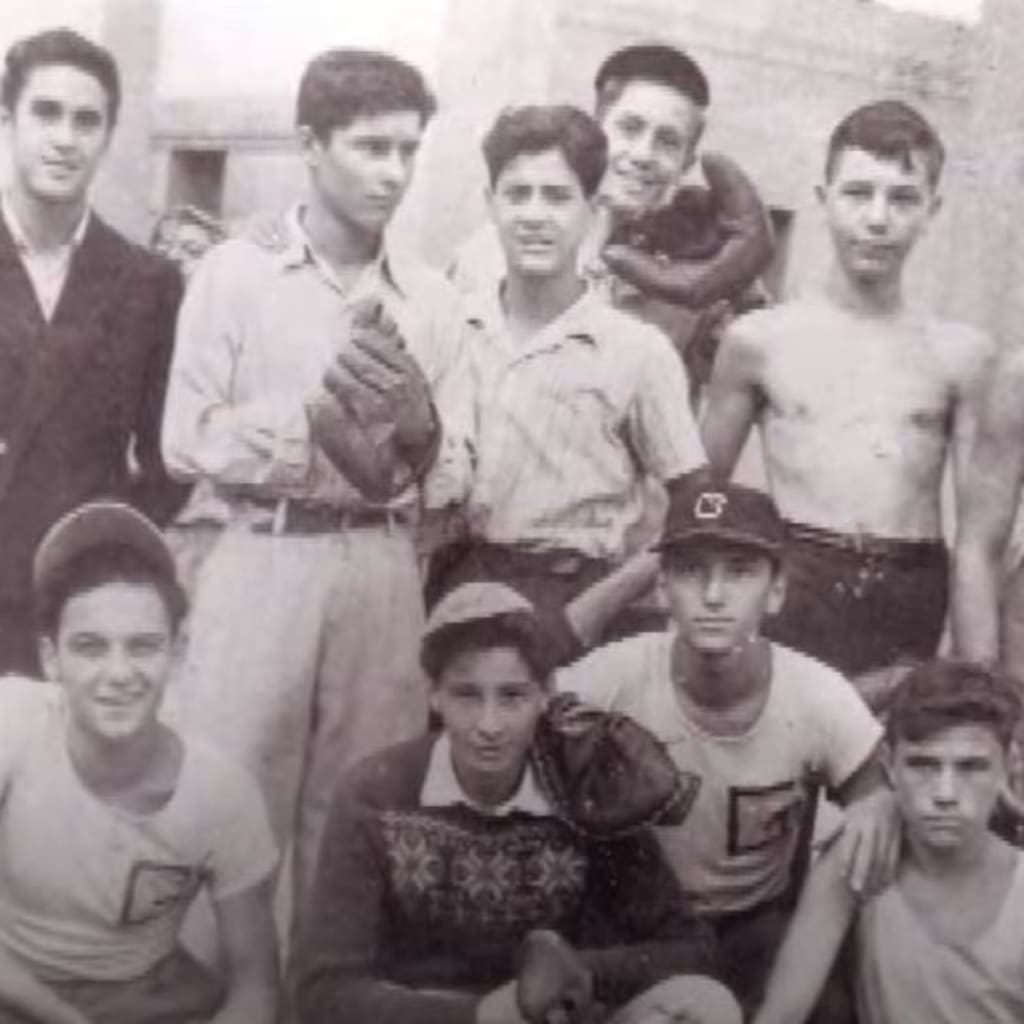
The GIs were happy to teach Italians the game and play against them.
A stadium was built with military equipment, teams were formed and the town immediately fell in love with the game. The simplicity, the difficulty, the beauty of it.
"I watched the game and started to all make sense," Nettuno resident and cemetery worker Rolando Belleudi said in "City of Baseball." "It's an incredible thing. That's when I started to love baseball."
The game not only spread within the town, but it also branched out to different parts of Italy. Through word of mouth, various other U.S. military bases dotted along the peninsula and Italian tourists who saw the game while visiting Nettuno, a league began to organize. By the late 1940s, there were teams almost everywhere and the official Lega Italiana Baseball was formed.
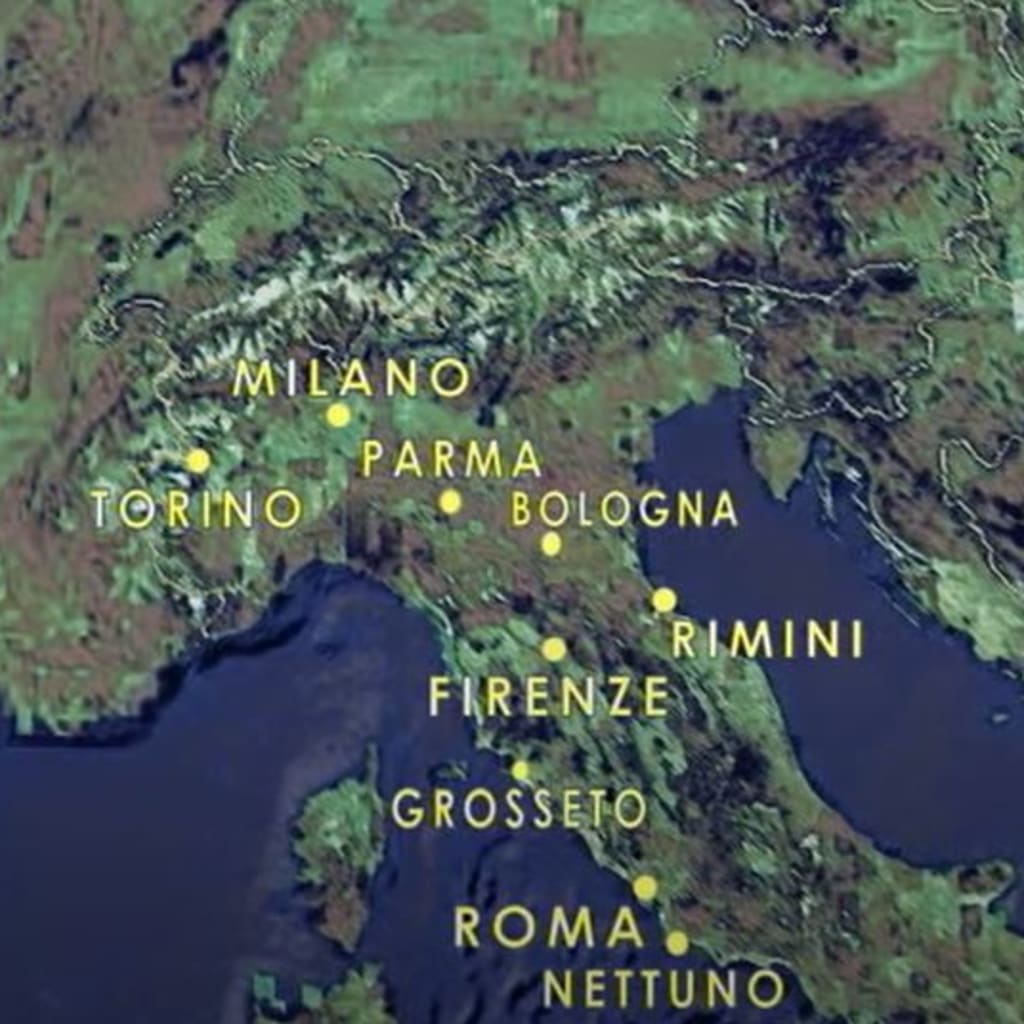
But Nettuno is where people lived and breathed the sport. The town's club has a long, storied past and the most championships in Italian league play. It's why Ralph made the area the focus of his documentary back in 2007.
"I was making calls 20 years ago to ask where to find out about the baseball culture in Italy," Ralph said. "And everybody said to go to Nettuno."
"It's like in the United States," Nettuno baseball legend Ruggero Bagialemani told me in a phone call. "The first sport is baseball and soccer is the second one. The only place in Italy like that. ... Everyone used to have a glove in their house."
Bagialemani, born in 1963, fell in love with baseball because his father fell in love with it. He played in Little League and was a star for the Nettuno Baseball Club and for Italy in international play. The shortstop proudly told me he has 14 Gold Gloves and compiled some incredible batting numbers over a long playing career. He played against El Duque and Hideo Nomo, he helped Italy to numerous gold and silver medals in the European championships. But his favorite memories were, of course, winning titles for Nettuno. No place could've appreciated it more.
"It was incredible, man. There were parades in downtown Nettuno," Bagialemani fondly recalled. "It was impossible to walk. The team bus could only move 100 meters in an hour and half. All my friends were there. It was crazy."
Nettuno BC has 17 total league titles and six European Baseball Championships.
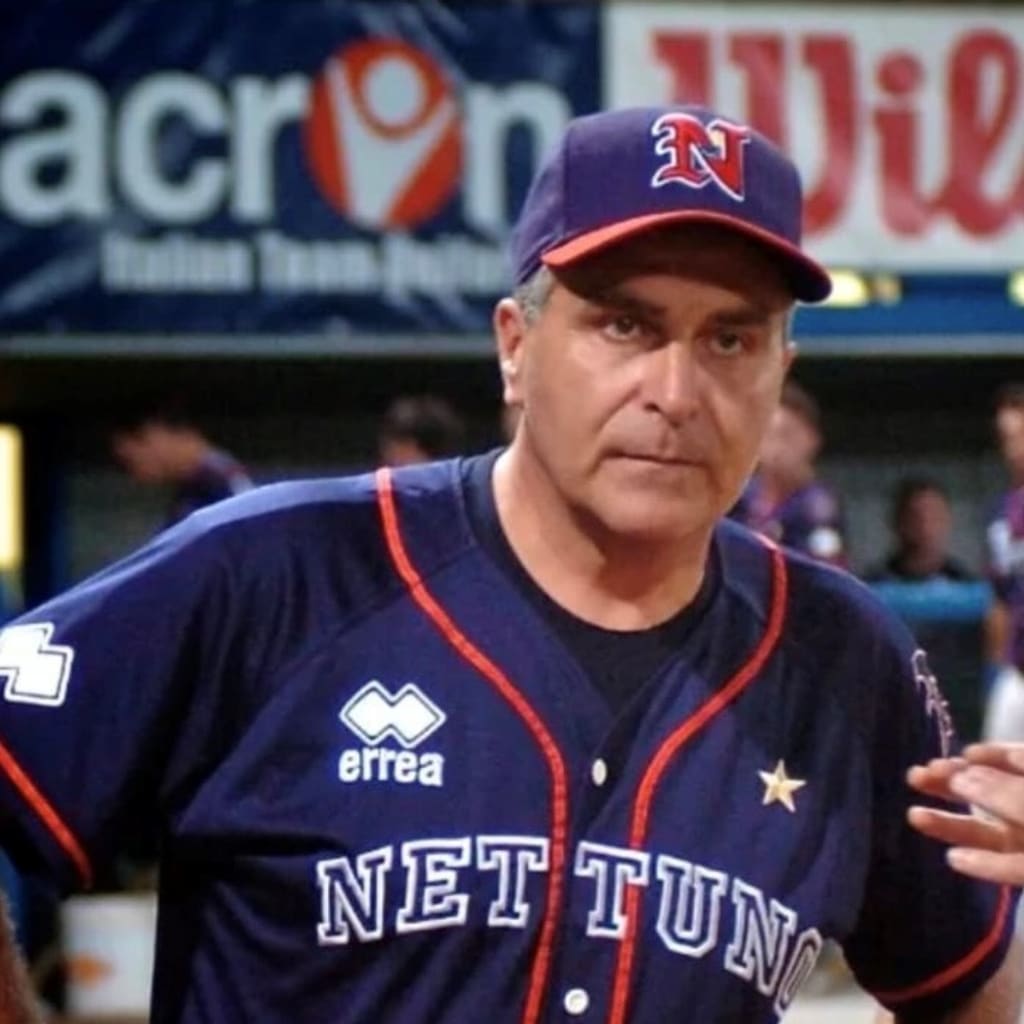
But one of the most famous baseball moments in the city's history has nothing to do with any players on any of the local teams. It has to do with one very famous Italian-American MLBer who visited in the late 1950s.
Joe DiMaggio, then 42 years old, had been retired for six years and was visiting Rome on vacation when, apparently, someone told him about this baseball-obsessed place called Nettuno just an hour south. He immediately dropped his fork and knife and asked to be driven down to see it for himself. He arrived in the middle of a league game, but at the crowd's urging, proceeded to step up to the plate (in his suit) and take at-bats against Carlos Tagliaboschi, one of Italy's best pitchers.
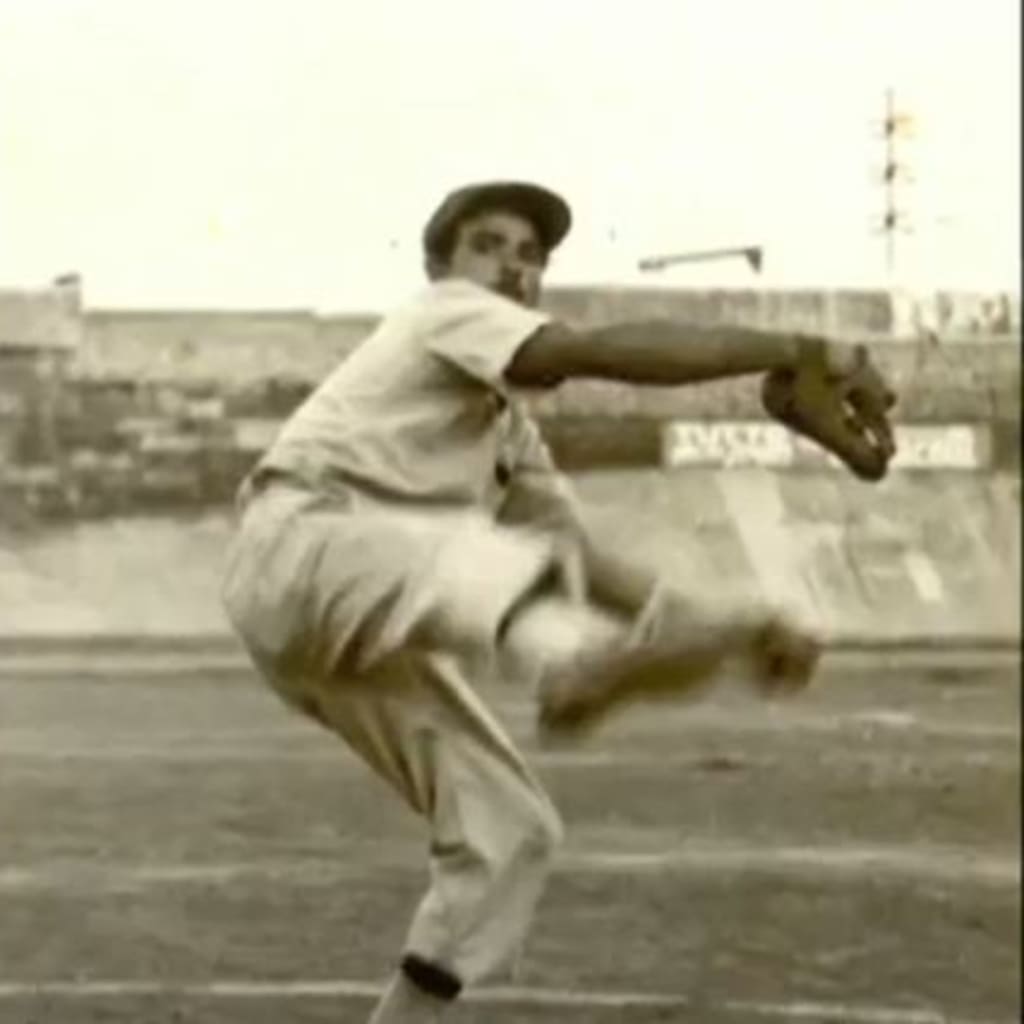
Tagliaboschi had a strange, herky-jerky, left-handed windup, and he quickly, and shockingly, got two pitches past the former Yankees superstar. Players there at the time were a bit skeptical if DiMaggio was as good as they heard he was.
"I thought, 'Could this really be the best player in America,'" Pietro Monaco said in "City of Baseball."
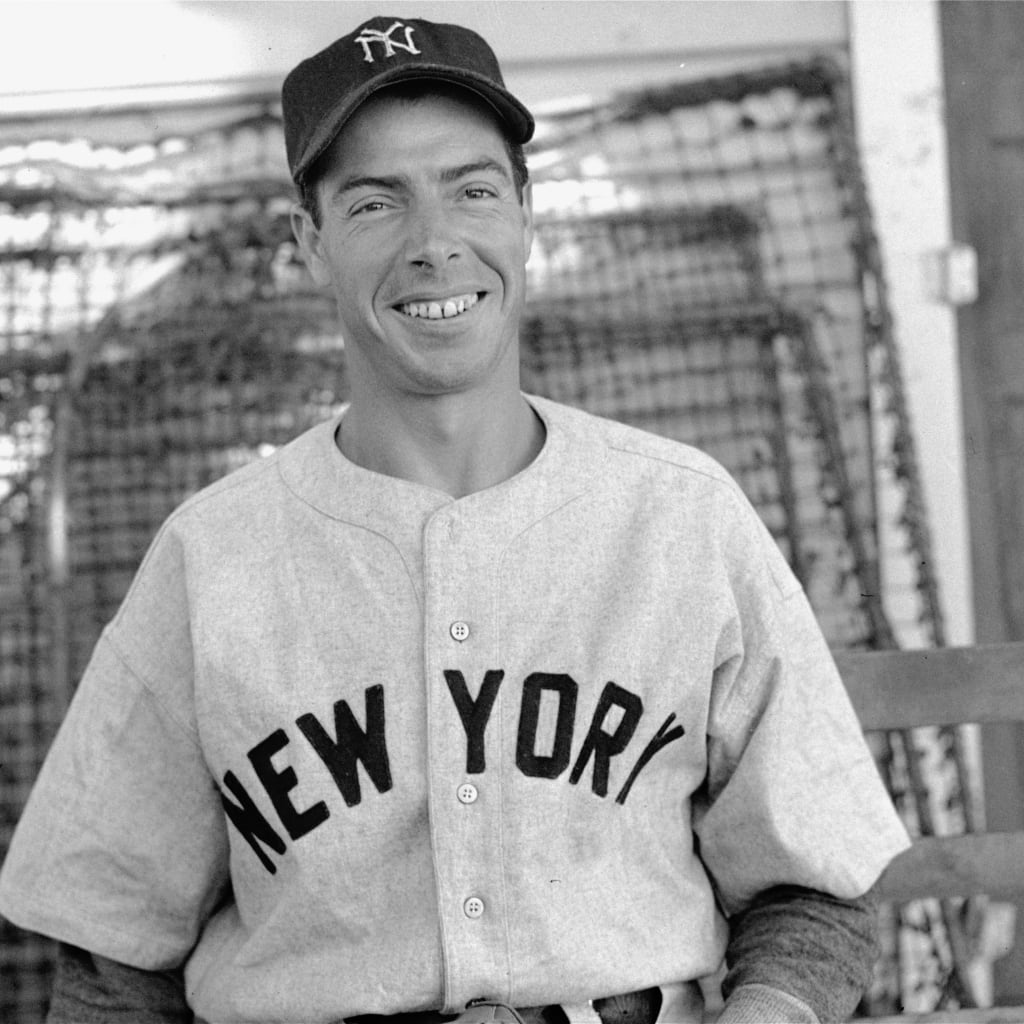
The Yankee Clipper then took off his jacket and told Tagliaboschi to bring it.
"More," he said.
The story changes with whoever tells it, but witnesses say DiMaggio then crushed six or seven straight home runs out of the small Nettuno confines, across a nearby farm, out over some cliffs, above the beaches and into the sea. The teams had to eventually stop the hitting clinic because they were afraid they'd run out of baseballs.
It's the sort of mythical baseball tale that only baseball-loving communities could have. Bagialemani knew about it and everyone in the documentary -- old, young, male, female knew it, too, telling it with such a fervent joy. Almost like it had just happened yesterday.
"That oral history of DiMaggio is told by multiple generations," Ralph told me. "Everyone in Nettuno knows that story."
"I was born before it happened, but my father told me about it," Bagialemani said. "He's a legend here."
Like any sport in any country, the popularity of baseball in Italy (and Nettuno) has had its ups and downs over the years. Soccer is, obviously, a big deal, and Bagialemani speaks of the younger generation not wanting to learn the sport. There are too many other distractions. Still, as Ralph said, there is a "robust Little League" and recent efforts have helped to amplify baseball throughout the country.
Former MLBer and Nettuno baseball star Lenny Randle has basically dedicated his entire post-playing career to growing the sport in the area. Italy has the second-most European baseball championships, only trailing the Netherlands. There are a healthy 30 teams in the Serie A Baseball League.
"We have to be pragmatic and grow the game," Hall of Famer and Team Italy manager Mike Piazza said. "But it all comes down to working with the kids to instill that culture of baseball."
Maybe the World Baseball Classic can help to keep the momentum going.
Team Italy will be in a tough pool with the Netherlands, Cuba, Panama and Chinese Taipei, but Bagialemani thinks "maybe they'll have a chance." Maybe.
Maybe Italy can make a surprising run and become the darlings of the tournament ... just like it did after beating Mexico and Canada in the first round of the 2013 Classic.
Bagialemani and others in Nettuno will be paying attention. And if there is some success, maybe the coastal town can capitalize on it to ramp up the growth of the sport, just like it did after World War II almost a century ago.
What better place to reignite that love than the City of Baseball?
